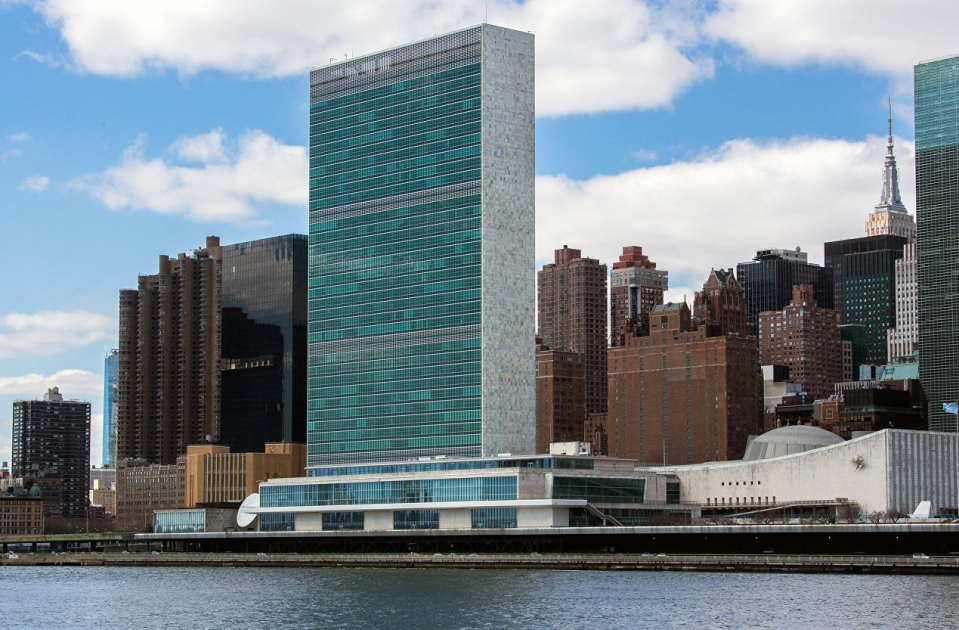Statement by Anna Evstigneeva, Deputy Permanent Representative of Russia to the UN, at an open VTC of UNSC members on the situation in Yemen
Mme. President,
We thank Special Envoy Martin Griffiths, USG Mark Lowcock and WFP Executive Director David Beasley for a comprehensive review of the situation in Yemen. We also listened carefully to Mr. Omer Badokhon.
Availing of the opportunity, we would like to congratulate the WFP represented here today by Director Beasley, on the Nobel Peace Prize. We will continue to support the WFP activities, i.a. at the Yemeni track, in providing humanitarian support on a non-discriminatory and unbiased basis.
We keep close track of the situation in Yemen, which is living through the sixth year of acute internal political conflict, furnished by an unprecedented humanitarian disaster that requires immediate response of the global community.
Many years of conflict have destroyed Yemen’s civil infrastructure and healthcare system. The population of the country is starving; people are deprived of basic social protection, and need help. All of this is exacerbated by the coronavirus pandemic. In this regard, we highly commend the work of UN humanitarians, and we regret to see that UN programmes for providing basic assistance to Yemenis have to step down their activity because of a lack of financing.
Russia continues to assist the people of Yemen, i.a. via UN agencies. We call on the donors, i.a. from the region, to enhance the required financial support. We remind that humanitarian assistance that comes to Yemen from abroad must be distributed on a non-discriminatory basis among the entire population.
It is clear from what we heard today that the humanitarian situation in Yemen can be improved only through conjugation of political and diplomatic efforts for settlement of the conflict. However, we have to state that political settlement stalls, and armed action escalates in various parts of the country. We note with regret that the sides still have not arrived at the signing of a “Joint Declaration”, and that implementation of agreements, including “Stockholm” and “Hodeidah” does not yield the desired result. It threatens to spiral up violence, which will be beneficial only for extremists and terrorists. We expect progress in implementation of the Riyadh Agreement, which will boost inter-Yemeni national dialogue.
We believe there still remains an opportunity to come up with arrangements, in particular with regard to confidence-building measures, universal ceasefire and re-launch of inter-Yemeni negotiations. Exchange of prisoners and detainees under ICRC auspices is yet another proof of this. Such a large-scale humanitarian operation conducted by the opposing sides shows that they are able not only to find compromise-based solutions to problems and contradictions, but also put them to life.
Progress also can be achieved on the situation around SAFIR tanker. We call on all involved stakeholders, including UNOPS, to account for each other’s interests and act constructively in order to develop acceptable-for-all solutions.
We have repeatedly expressed our position. It remains consistent and unchanged: we call to elaborate a negotiations-based solution to the Yemeni conflict. In this regard, we reiterate our full support for Martin Griffiths’s efforts to resume political process, develop confidence-building measures, and ensure comprehensive ceasefire. The international community is united in an understanding that there is no military solution to Yemen’s problems.
We call upon all sides to join the efforts of Martin Griffiths in a constructive manner. We will set forth our assistance to the UN presence in Yemen, i.a. through contacts with all political forces of the country and interested stakeholders.
We would like to remind once again of Security Council resolution 598 that tasked the Secretary-General to develop security architecture in the region in collaboration with the regional states. We draw your attention to the Russian Collective Security Concept for the Persian Gulf region that is designed to lead conflict situations out of deadlock, devise confidence-building measures. In October, we held a UNSC meeting on this issue, which reiterated that de-escalation is in demand with the region and the international community at large.
Thank you.
